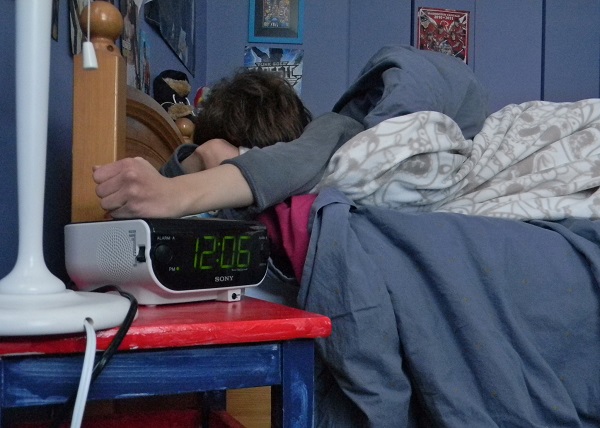Oversleeping: Is it healthy?

Experts recommend you should get around 7 to 9 hours sleep per night. But what if you get more than that? Can getting too much sleep ever become a real issue. Oversleeping has been linked to many medical problems, including diabetes, heart disease, and increased risk of death.
According to researchers, there are two other factors that are associated with oversleeping, depression and low socioeconomic status (meaning, people who rather stay at home than enjoy outside life once in a while). Those two factors may be the reason for the observed negative health effects. For example, people of lower socioeconomic status may have less access to health care and therefore more undiagnosed illnesses, such as heart disease, which, in turn, may cause oversleeping.
The amount of sleep you need varies over the course of your lifetime. Depending on your age and activities as well as your whole physical health and life habits. For instance, during periods of stress or illness, you may feel an increased need for sleep. But although sleep needs differ over time and from person to person, experts typically recommend that adults should sleep between seven and nine hours each night.
Of course, not everyone who oversleeps has a sleep disorder. Other possible causes of oversleeping include the use of certain substances, such as alcohol and some prescription medications. Other medical conditions, including depression, can cause people to oversleep. And then there are people who simply want to sleep a lot.
Oversleeping may often lead to Medical Problems
Diabetes – sleeping too long or not enough each night can increase the risk for diabetes.
Obesity – sleeping too much or too little could make you weigh too much, as well. Study showed that people who slept for nine or 10 hours every night were more likely to become obese over a six-year period than were people who slept between seven and eight hours.
Headaches – sleeping longer than usual on a weekend or vacation can cause head pain. Researchers believe this is due to the effect oversleeping has on certain neurotransmitters in the brain, including serotonin.
Back pain – You should do your regular exercise program when you are experiencing back pain. Doctors now realize the health benefits of maintaining a certain level of activity instead of sending the patient to a complete bed rest and very little activity.
Depression – Although insomnia is more commonly linked to depression than oversleeping, roughly 15% of people with depression sleep too much.
Heart disease – A careful analysis of the data from that study showed that women who slept 9-11 hours were more likely to have coronary heart disease than women who slept eight hours.
Regardless of the cause of your oversleeping, practicing good sleep hygiene will help you reap the benefits of a healthy seven to eight hours of sleep each night. Experts recommend keeping the same bedtimes and wake times every day. They also recommend avoiding caffeine and alcohol close to bedtime. Exercising regularly and making your bedroom a comfortable environment that’s conducive to sleep will help you get the amount of sleep you need.